Why is it that a person becomes chained to feelings of misery?
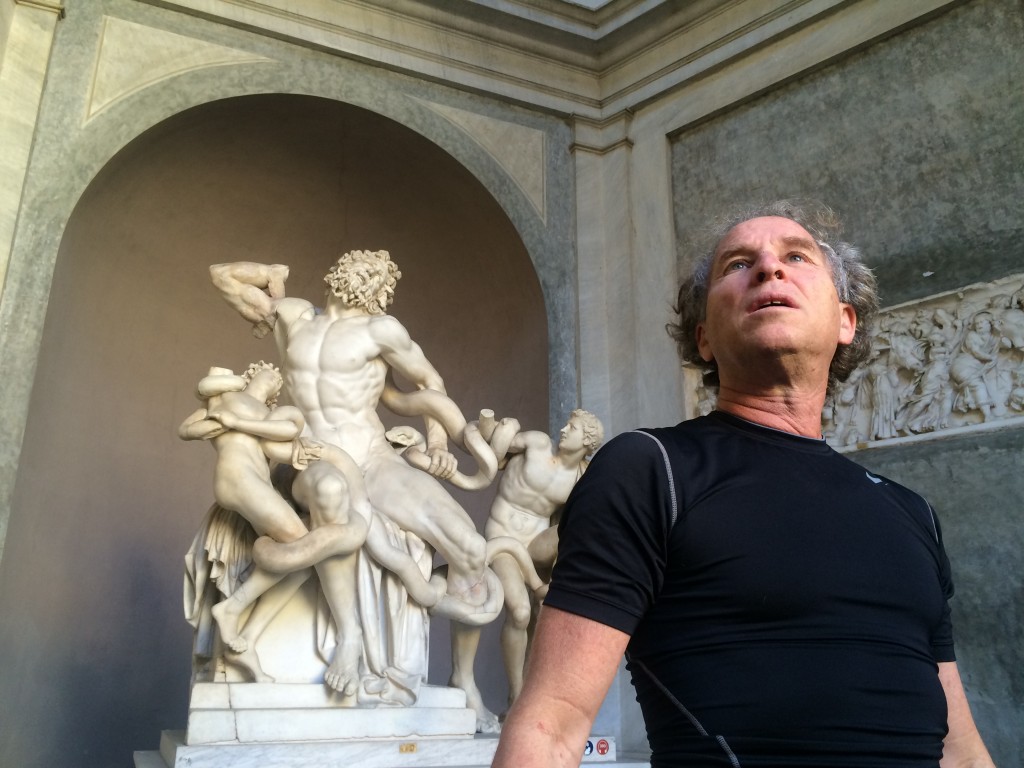
Why is it that time and again a person can finds it difficult to live an independent life according to his own worldview and will?
Why do people avoid living their dreams?
It is a desire that hides behind a screen of chains or -the selfish interests of others.
This is an article about wishes and selfishness, the selfishness that acts against the wishes on an individual. On many occasions we find ourselves wishing to be considered towards the selfishness of another. But when this selfishness is turned round and accuses us of being selfish, it weakens us as do chains. It weakens our willpower and finds us guilty, a false guilt, but it permeates through us and in time becomes an independent force in itself. This force has Six degrees -Six Degrees of guilt.

For those who are suffering from guilt feelings it is difficult and sometimes even impossible to recover peaceful state of mind by themselves – why to suffer? Restore your positive emotions and reduce pain through simple, natural and gentle treatment without medication. Yaron Margolin
Liberating oneself from the need to rely on false sources of internal and external support is a matter that comes up time and again in my sessions with artists, business people and individuals, who are seeking for an intimate relationship and a functioning, healthy way to manage their career.
Time and again I come across states of personal stagnation, faulty business strategy, cooperation with an unreliable partner and a belief in false promises.
My role as coach is to help people to realize their life-goals, further improve their capabilities and judgment so they can take the right opportunities for bettering their life. Time after time I am faced with the opening questions:
Why are people bound in chains? A meaningful life is not an unattainable dream. Independence is associated with human dignity and the right to freedom. And yet, people are often bound.
This article about the bound person identifies six degrees of chains. "Six degrees of guilt" speaks of the varying degrees of being chained, of being prevented freedom and self-respect. I deals with avoiding a meaningful life, the reason for which is these chains exist.
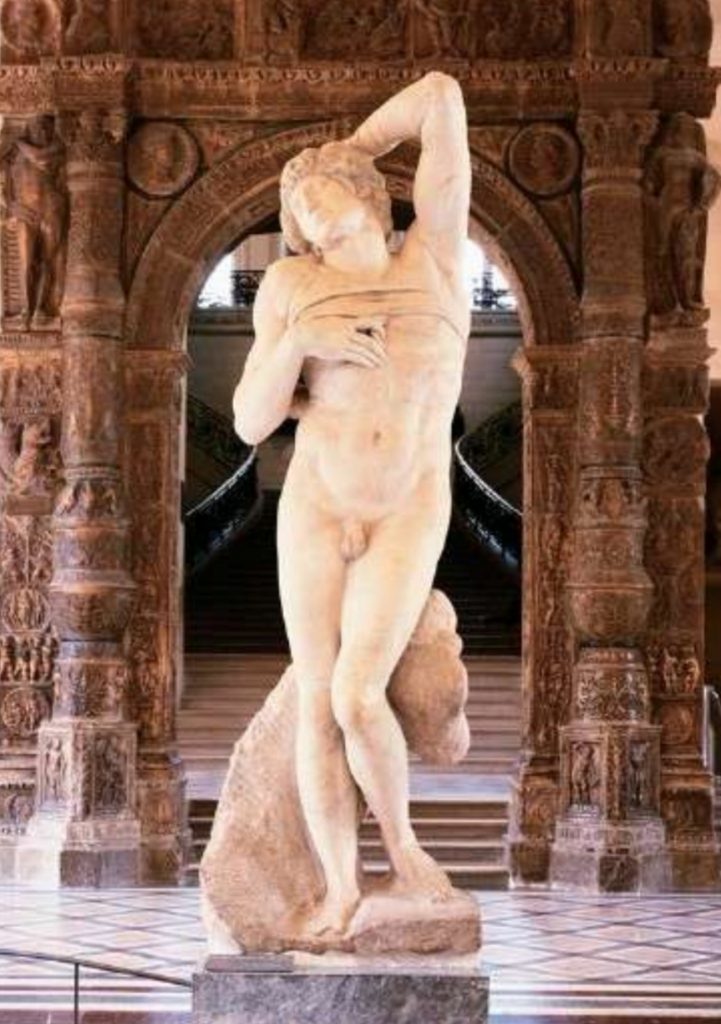
”Six degrees of guilt" comes to say: there is a solution. And the solution linked with taking off these chains, and the feelings tied in with an ancient early difficulty of our culture in doing so. We must now take a long hard look at this phenomenon, its components and the way it appears in our everyday lives.
For questions – here or scroll down.
Liberation requires mental strength
Liberation requires taking of the chains. That said, in order to be able to do so one must go through a process of building the necessary inner strength and mental powers. The process begins with the desire to break free – a vision of release. The reader of this article has already gone through this stage, he/she wants be liberated. The courage to dream of a free life is in you. After the vision and belief comes the issue of the kind of freedom and that of resources one has in order to obtain it. One must plan the course of action, to set out a plan, deal with its demands and face its challenges.
In addition to the strength and resources necessary to take of the chains, in order to succeed liberating oneself one must put in place psychological measures necessary with which to face the possible challenges of reaching the ultimate goal: freedom. These are: a vision, an idea, the means, way and goal. Together they allow the developing and creating of the mental backbone necessary to realize this dream. This backbone will grow stronger through the experience of facing challenges or will shrink, injured, insulted and will die as in the Michelangelo sculpture above. This backbone I speak of is will and willpower.
Will serves as a safe haven, and will power (much like a sail) is the drive. The sailor stabilises his ship safely with the anchor and with the sail he directs the ship forward, in accordance with the conditions of the journey. On some occasions he will put down the anchor and on others lift the sail, all in order to sail his ship safely, despite the possible great storms that night come his way on the open sea.
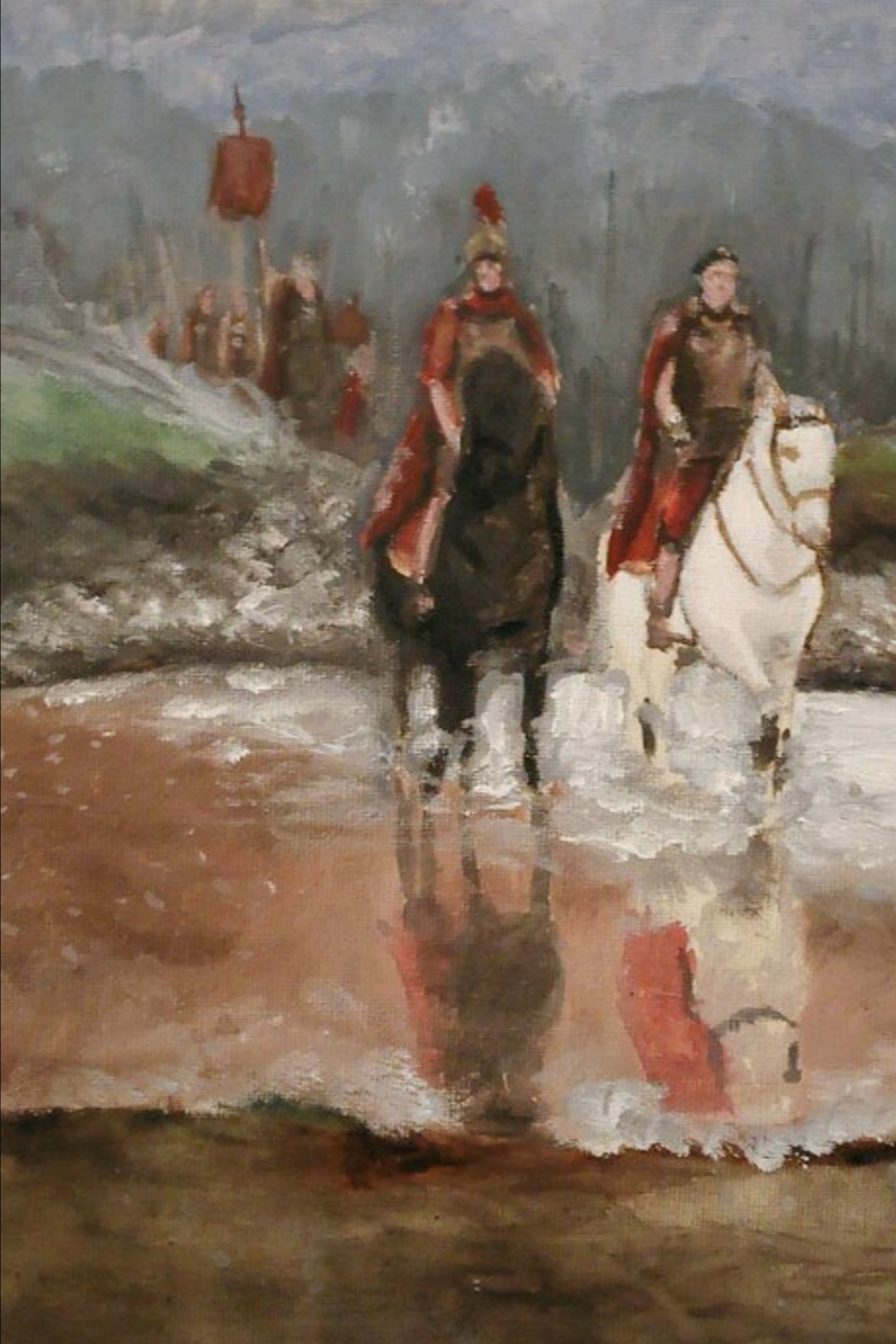
Will
Will reflects the freedom of person's inner self in the face of his surroundings, and makes present within him the forces that will act to achieve it. Will reflects the natural liberty of each individual, the ability to forego the selfish needs and concerns of another, in order to be able to work for his own personal good – without prejudicing or hurting to the right of others to their own will power. Ultimately this ability benefits others as well.
Many times will hides behind a screen of the chains (i.e. the selfish interests of others). These chains weaken him and burden him with guilt, most often a false guilt, but it penetrates through him and in time becomes present in him as an independent force. At times these chains make a person want revolt and act against them, and this is when out into the open springs the powers of action: will powers.
Successes which come along one’s way provide satisfaction and pleasure and immunize the self, intensifying his/her powers. After gaining much experience in facing challenges the self has at its disposal resources. Or better said: resources that have developed into life skills. These have the power to stabilize in a person the sense of dignity and personal freedom. Failures delay development, reinforce the chains and the feelings of guilt that reduces personal powers. Both successes and failures give life meaning, but the less guilt one has the more he is able to bounce back into action. The meaning of life in reflected in both, and this in turn enables the development of life skills.
Will and will power and the force opposing it, i.e. guilt (or the selfishness of others) with its six varying degrees shape a person’s ability to take action. Enhanced capacity for wit, strategy, alertness to the selfishness of others, judicial powers, and real entrepreneurship: all are forces which will team up and together and become the most important elements to obtaining an independent personal life the protection of a person’s dignity and freedom, should one work hard to increase them.
People are different from one another and there for so is the nature of their aspirations. They are also gifted with will power of varying strengths. A weak will power is not a biologically fact. Nor is it fate, or a divine curse. Will powers develop throughout our lives – if they are allowed to do so. They stem from embracing life experiences, facing challenges and the realisation of small and sometimes big heart wishes.
Lack of developed of life skills is tied in with a weak will and with underdeveloped will powers that weren’t allowed to grow. A weak will power and lack of significant achievements in life is to do with insult. On the other hand a weak will power and the underlying manifestations: Chains, stagnation, boredom, consideration for the selfishness of others, lack of meaning, or "weak will" are all to do with feelings of guilt. I will discuss later the six degrees of this condition.
Feelings of guilt and manipulations
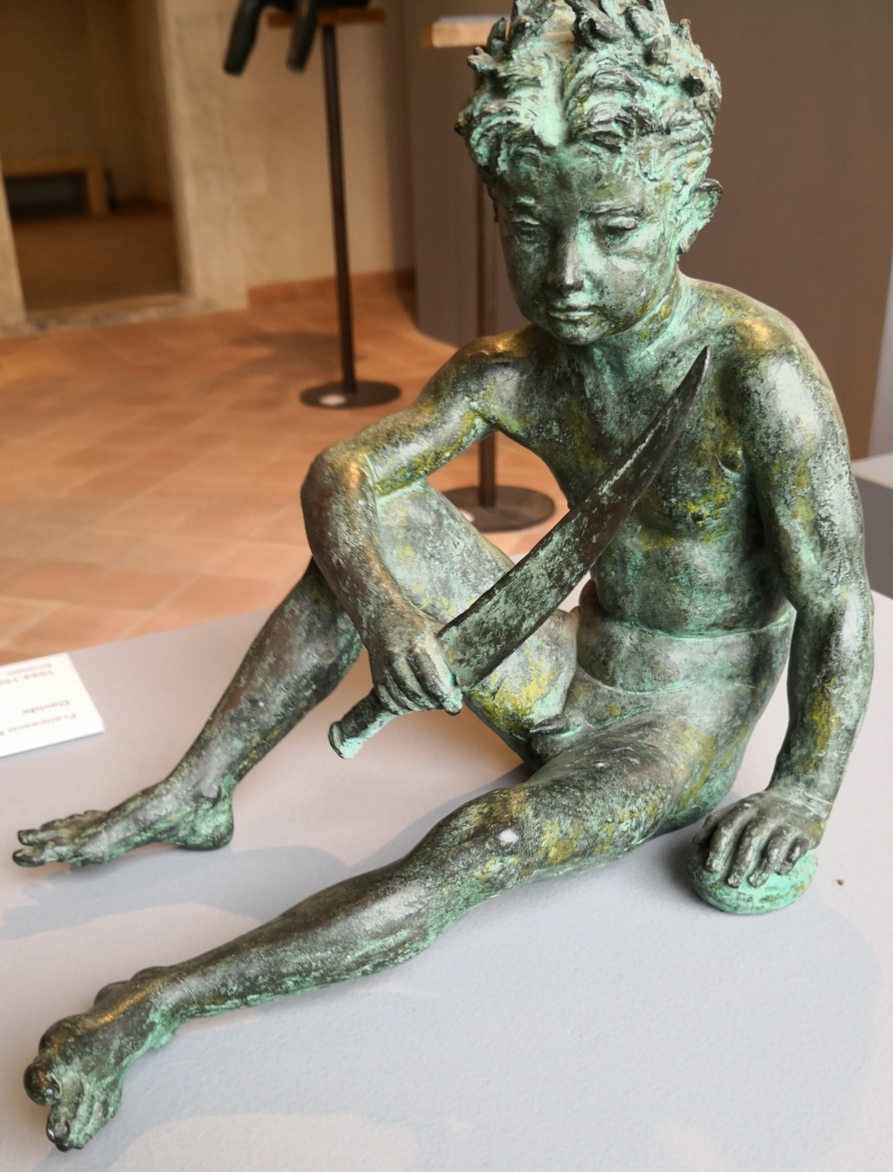
Messina Francesco, David – Francesco of Francesco Messina He is a great poet about a boy who radiates inner beauty with a touch of rural masculinity – a suburban boy for misery, certainly not a male beauty model for Michelangelo – this DAVID convinces you more about the duality of the inner David when he holds a knife rather than a stone tightly gripped in his left palm. Touching her. Did not lean on her. As a keeper of distance from the stone – as if he sensed the gravity of his presence and deed, the use of the sword would be saved. After all, a sword is a man's and stone's right tool for a boy who wants to keep a lot of openings for a quick retreat – we know David's fate but for a considerable Messina David whose future is in the fog and when he is holding a knife, doubt the sword in a child's position rather than a man going to battle, he remains masculine – the look leaves no doubt. You immediately realize that this is a wise man who can protect his dignity, even his future, consider. Our ancestor David includes the legend of David enriched by sophisticated political reporters and his David sitting as a child with a snake's soul for a moment as he is a teenager, and then you will see the snake in his glory – he, is not in the big moment. On the contrary, between the moments, At the junction of the sun rising from the east: It is no longer a night, but not before cattle and able to cook our nature and is in its seat closer to the swimmer (Nuotatore – see above) shown in Taormina close to him, rightly so, we come to teach that an uncle we met in the works of Donatello (Berglo – Florence, Standing) or Michelangelo – needless to understand his inner figure that his power, as shown by Messina, is a new form of yet. Potential for great work. We saw this "before" in Bianca – the portrayal of such lofty wives – the potential is an issue that even Rembrandt did not dare to deal with – he is also in the statue of the boy named Swimmer and again he is the boy holding the sword – it is David who sits and prepares a big plot – David before. Only Messina is able to shape David sitting before it surpasses any standing David – because in my opinion David Messina is made up of the clearest Davidic material created to date is our David. Bravo Francesco Messina. Recorder and photographer Yaron Margolin No longer a night, but not yet cattle and able to cook our nature and is sitting closer to the swimmer (Nuotatore – see above) shown in Taormina close to him, rightly so, came to teach us that King David our ancestor whom we met in the works of Donatello (Berglo – Florence, standing) or Michelangelo To him – it is unnecessary to understand his inner figure that his power, as shown by Messina, is a new form of yet. Potential for great work. We saw this "before" in Bianca – the portrayal of such lofty wives – the potential is an issue that even Rembrandt did not dare to deal with – he is also in the statue of the boy named Swimmer and again he is the boy holding the sword – it is David who sits and prepares a big plot – David before. Only Messina is able to shape David sitting before it surpasses any standing David – because in my opinion David Messina is made up of the clearest Davidic material created to date is our David. Bravo Francesco Messina. Recorder and photographer Yaron Margolin
The world of feelings is in constant movement through its varied poles. Guilt feelings exist in this space and are driven through the emotional sub-space. The two poles that define the space of feelings of guilt are: guilt and manipulation.
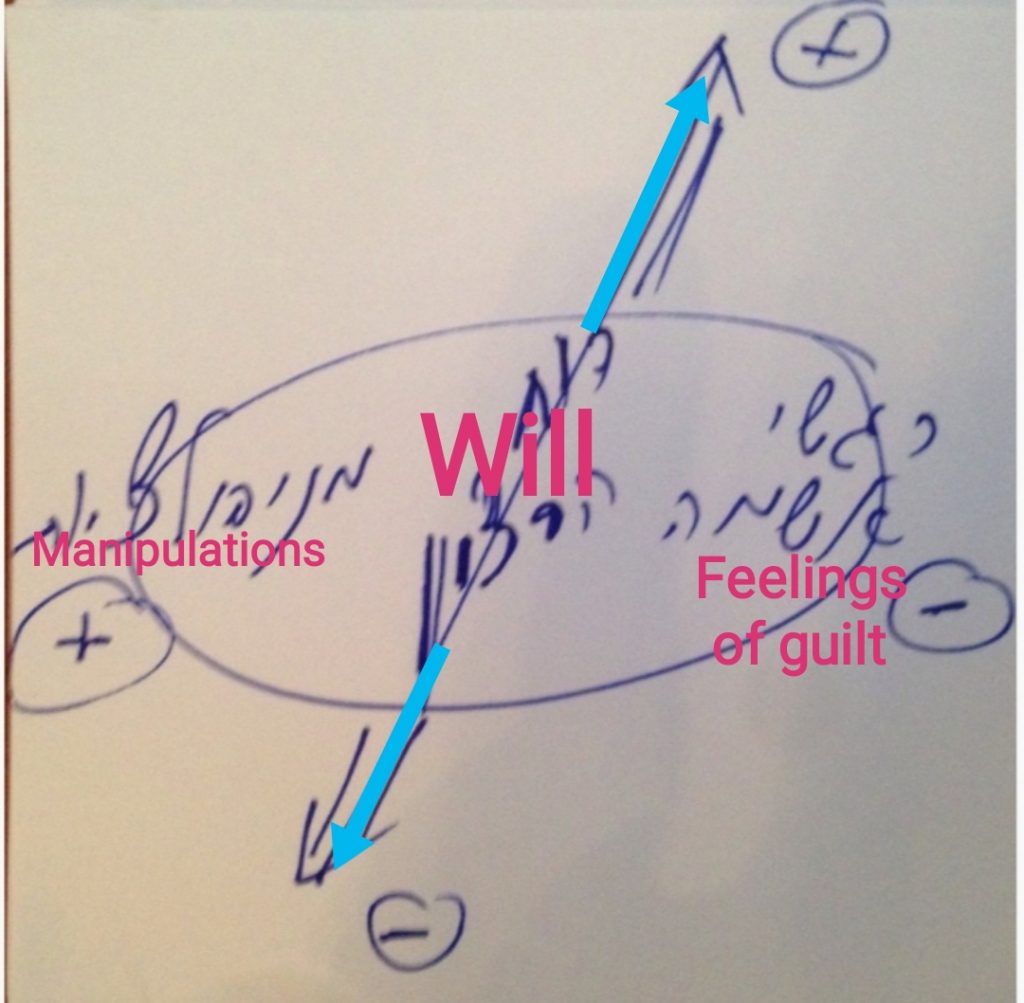
The world of feelings is in constant movement through its varied poles. Guilt feelings exist in this space and are driven through the emotional sub-space. The two poles that define the space of feelings of guilt are: guilt and manipulation.
In the left Pole one notices manipulations (drawing down the body and manifesting themselves in a physical shutdown) and on the second pole, on the right are the feelings of guilt. Will power hangs in-between the two. Only manipulations are capable of causing feelings of guilt, building and strengthening them. Without manipulations there is no guilt.
Manipulations represent the selfishness of others. Selfishness hides. It does not express itself in a transparent verbal manner such as: "I do not want you to enjoy a trip with your friends”. This is a sentence you will never hear from a mother or father, but their selfish worries rises up to oppose their child’s freedom: "You worry me, come down from the tree, stop exposing your legs, stop shouting….” These are the kind of selfish words which will bring any small child to block his/her will.

The selfish condition of one person attempts to make another person stop feeling, thinking or behaving in a certain way, by raising false arguments. The arguments, in the absence of powers of judgment, may sound accurate, but they are not, and they only reflect a conscious distortion of the selfish state. Selfishness is manifested in speech, body movements and vocalizations that mislead the listener; this is for the personal well-being (mental or other) of the speaker- namely the manipulator– whose actions are manipulations. Manipulations chain increasingly the other’s will. They originate in selfishness and they result in feeling of guilt.
Manipulations are initially external

Manipulations are initially external. In terms of personal will they are an invading force; an alien force that barges in or crawls slowly, penetrating with its trickeries and are later projected to bind another human life. The sources of manipulations are often familiar figures: a boyfriend, girlfriend, partner, brother, sister, mother, father, uncle, husband, wife … with the help of such a close person the manipulations invade and prevent a person from developing, realising themselves. In short, from acting according to his/her own will.
The manipulative forces project inwards. One can recognise them in the positive pole. Feelings of guilt are the continued movement which represent the selfishness others, and develop in the negative pole. Both poles interact with each other against the individual’s will power and paralyze it. See diagram below.

The Father’s sail and the mother’s anchor
The means we have available to us are reflected through concepts that come naturally in my work: The father’s sail and the mother’s anchor. Both aid in the development of opposing forces to the world’s selfishness.
Will represent and reflects their counter-point. Inner freedom in the face of the selfishness of those around him in reflected in the will power a person possess in order to act to achieve his/her vision.
Will power is an expression of a desire which realises itself through different means. It brings satisfaction, pleasure and a sense of security in one’s personal ability. Action taken through will power shapes an internal backbone and a sensation that I call "the father’s sail"; the presence of a supportive father, standing behind his son/daughter – always present, saying – “try my daughter/son – I trust you, I know that you will succeed… try again…”.The father’s sail rises in the right moments and opens with the force of the internal backbone and allows the individual to move forward with confidence.
This is the mother’s ability to contain and embrace
The anchor is an image associated with the mother. It is the wisdom to know where the safe port lays, so that one can rest from the troubles of the road, sit down to eat or take pleasure in good company and a beautiful landscape. This is the mother’s ability to contain and embrace.
Feelings of guilt can be derived from a torn father’s sail. The sea’s breeze will not fill it up and allow the sailor to continue his/her way at sea. A lack of safe port where one can to throw an anchor are feelings of guilt which stem from a mother’s selfishness. They can also be an expression of poor means, a lack of life skills. They are a bruised, broken backbone. Feelings of guilt are chains and pain. Guilt grows in a selfish environment, blind to the self that in growing in it. There are forces which enslave the individual to the manipulator who guides him/her with selfishness and not love whilst saying: “I am worried about you.”

An individual saddled with feelings of guilt dreams of an inner peace of mind. A chained person dreams of release from the trust he/she gives time and again to selfish forces that are unworthy of it.
The prerequisite is clear – he/she who which seeks to recognise his will power, to give it a voice – is required to continuously work on it. Will must be given a voice. Self-ness must be given a voice. In order to be able to continue realising this will one must develop one’s own voice, and be a person free of chains. One has to work- and work hard – in order to develop the necessary life skills.
In order to dismantle limitations, and be able to identify the voices that support and help one realise his will hard work must be done. In order to bring one’s voice to be heard clearly one must be able to face complex challenges and here too one has to work hard.
A person chained to the selfishness chains of the world can reach independence and I will be glad to join him/her on their journey – I would be honoured.
A broken reed
"This is a term which originates from the bible “leaning of a broken reed”( Kings II Chapter 18 verses 17-21) a reed is a stick or a hollow stalk. It grows on the bank of a river and looks like a sugar or bamboo. It is the source of the scientific name of the walking stick and normally it is strong and reliable. If this reed is broken in some way and if you lean on it too hard, for example falling into the ground whilst walking, it might penetrate your hand and pierce a hole in it. Meaning – who ever leans on a broken reed gets hurt. The term broken implies a choice of an instrument to lean on which can cause harm instead of helping. Such a stick can harm after a while even if in the beginning it seems promising. These are machineries of a broken reed.
Among the broken reeds are choices in unreliable persons as allies, life partners, business partners, as well as the mechanisms of escape from responsibility: Use of emotional outbursts, violence, blaming others, criticism of others, not to take responsibility for errors made, excessive sleeping, alcohol, drugs or unrestrained lusts. Among the broken reeds are workaholism and other actions which are physically exhausting. Broken reeds weaken judgment (see my article: The day will come we will sit in front of the fireplace…), the need to please and give service to interested parties who do not have our best in the forefront of their minds, and a mistaken attitude to time and assets.
13 year-old Raul who did not know what he wanted
Raul cried all night. His soul raged and could not find peace. His mother Hagit sat in front of me in a pretty similar state – outraged. It turned out that the root of his rage was tied in with an inability to decide. He simply could not decide…
I: “What are the options?”
Hagit: “Raul is faced with three options, all around the bar mitzvah celebrations: a trip to Disneyland Paris, only going up to the Torah, or going up to the Torah with a big party and a new smartphone as his present.”
I: “How old RauI?”
Hagit: “In two months he will be 13 years old.”
I express interest in her plans, trying to find out if she is planning a bar mitzvah party for him. Hagit confirmed that she had planned a modest family celebration, as the family is short of means. I try to find out why this causes such an emotional upset.
Hagit: “My parents promised him a trip to Disneyland, and he has been using a smartphone for some time, but it seems that his father has an objection to him using such a phone.”
I ask for the reason for this objection and what it upsets Raul so much. Hagit explains Raul is the youngest child and neither of his two older brothers have a smartphone, on top of which Raul’s relationship with his father is complex and Raul is scared of him. The father is a very critical of Raul, and Raul never disobeys his authoritarian father.
I: “You live apart?”
Hagit: “Since Raul is 8 and a half years old we live separately.”
I: “How has Raul been coping with this separation?”
Hagit: “He believes he can get us back together and is excited about it.”
I: “Does Raul express his own will in anyway, for example in his relationship with you?”
Hagit: “He always gives in to the younger of his brothers.”
I: “Why does he always give in, you have two more children, does it seem right to you that he is the one always to give in?”
Hagit: “I did not think about it.”
I: “If we can find a way to find out what Raul would like even in a field or wish other than the smartphone, even if this wish is not fulfilled, we might be able to develop his ability to reach independence in the future.”
Hagit: “Can you explain what you mean?”
I: “A desire or a wish (will) is still a wish even if it revolves around a small matter such as a sandwich. Maybe we could find out what sandwich he would like to have school?”
Hagit: “I think he likes cheese omelette sandwich.”
I: “Are you sure about that?”
Hagit: “You are confusing me.”
I: “The choice of a sandwich is not that important, but rather what it represents – what will? Yours? Or maybe his father’s? In my opinion it is worth finding out if the cheese omelette sandwich truly reflects his will.”
Hagit: “Yes.”
I: “Do you know if he eats his sandwich?”
Hagit: “I never thought to find out.”
After three sessions a bleak and cruel picture transpired. No one knew what Raoul wanted. Not Hagit, not his father, not even Raul himself. His father was not only uninterested in his son’s desires, but he did not give place to his son’s will in any field what so ever. The father decided and the son obeyed without expressing a standpoint of his own, criticism or opposition. The only time he expressed a will of his own in the face of his father it was about the matter of the smartphone, of which he spoke to no one else. The father used this issue to crush his son and his will to dust. Later it turned out that the father’s opposition to Raul’s will was an integral part of their relationship: The father objected to any suggestion or wishes Raul ever expressed.
“We will not go to this movie, is not suitable for children.”
“I will not let you ride a bike.”
“I told you already there is no point to talk about a smartphone”
“A TV in your room? No way! Have you gone crazy?”
A month later it turned out that Raul really wants an I6 smartphone and that he has procured funding for this expense, but he was afraid that his father will find out about it. His fear was serious and deep.
“Listen mum”, Raul approached his mother one morning “If you really want me to have an I6 we can tell father it is because of you I want it. You agree?”
At this point we chose to focus only one issue – clarifying the desire, without trying to strengthen the will power in itself. The task was difficult, complex and we had to go through many obstacles and resistance.
Hagit attempted to focus further on the issue of Raul’s desire.
Hagit: “I thought you chose the I6.”
Raul: “No, only if you want me to have it.”
Hagit carried on: “Yesterday we surfed the web and look at many different smartphones.”
Raul: “Yes, but I thought that was because you wanted to know what's on the market.”
Hagit: “And did you see a smartphone you wanted?”
Raul: “Which ever you decide.”
Hagit: We saw several phones and I remember you looking time and time again at the I6 or was it I4?
Raul: I6.
Hagit: ”So you wanted the I6 in yellow.”
Raul: “Enough already mum, it does not come in yellow.”
Hagit: “So in what colour?”
Raul: “Black.”
Hagit: “Ok, but only if you decide that you want it.”
Raul: “What about father?”
Hagit: “If you choose a black I6, we know that is what you want.”
Raul: “And what about father?”
Hagit: If we find out that this is the phone you want, we will buy it and think later how to tell father.”
Raul: “We can hide it at home.”
Hagit: “You want us to hide it in your room …”
The conversation carried on and slowly the secret revealed itself: It was the Black I6 Raul wanted – he wanted it so very much.
The day arrived when Raul and Hagit went to buy the I6 smartphone.
The two stood looking at the phone, next to the sales counter in the shop. The salesperson came up to them and asked what they were looking for. The experience overwhelmed Raul. This special occasion, maybe the first for a long time in which his will was heard and accepted is about to become a reality. Raul began to show signs of great excitement. Suddenly, and as if from nowhere, he could not contain himself and burst into tears. Raul run away from the place as quick as his legs carried him, into the large shopping mall and hid….
Lost for what to do Hagit called me, she herself in tears and told me of the Raul’s reaction, a conversation I can still remember clearly sitting here in my clinic in Tel-Aviv now.
In the end the phone was bought. The machine survived three days until it fell in the rain during a school lunch break and went out of action.
Hagit did not give up and after finding out again what were Raul’s wishes the I6 was send to a lab and fixed.
That night Raul slept well but not in the following night.
The following night was spend at his father’s place. In the middle of the night his father, much like a thief, took the phone from under the child’s pillow in order to break its internal mechanism. After the father satisfied his own lust for power he put the machine back together and put it back under the child’s pillow. In the morning Raul noticed the phone was not working.
Hagit called the lab and asked for an explanation, and a letter followed with a report detailing the repair process. This demonstrated the phone which she paid to repair was tampered with the next day in the father’s home.
The chains of life – "Man is born free and everywhere he is chained” (from the "social constitution" by Jean-Jacques Rousseau). The main forces which halt the process of our development and realisation of our will are called mental blocks, which are tied in with the feelings of guilt which underline them.
These blocks stop action but when they are released it carries on as it should. Feelings of guilt are like blocks and chains, and can be broken down and taken off.
Raul is certainly a tormented teenager, but is he guilty of his sufferings? Does a 13 years boy possess judgment skills when it comes to his father? Sadly, the answer is no.
A13-year-old and certainly younger children and toddlers have not yet developed their judgment skills with which to deal with the adult world, and therefore they cannot turn this guilt back onto those older then themselves. They end up with the guilt. The feeling of guilt torments and tortures the soul. Even toddlers feel the injustice and insult or trampling on their rights. Guilt is an emotion one feels when one is in pain and in absence of judgment skills. Till about the age of 19 children and teenagers turn these feelings against themselves.
Raul felt guilty. He was tormented, but the reason for this torment is something (unfortunately) he could only find in himself. The guilt he feels towards his father is based on facts. He wanted the phone. He wanted!!!! He wanted to buy the phone against the expressed wishes of his father. This is where the chain and block start to appear with the purpose to shut down his will and crush it.
I hope that together with the mother I can release this boy from feelings of guilt.
Guilt feelings are to be found in the negative pole of the mental space whereas the will is in the positive pole. The manipulative father abuses this pole and gives birth to these feelings.
Desire is power – a marked vector – an arrow. Usually we will mark the will with an upright arrow (vector), and when it symbolises the development of life skills, in a diagonal arrow. (See diagram above.)
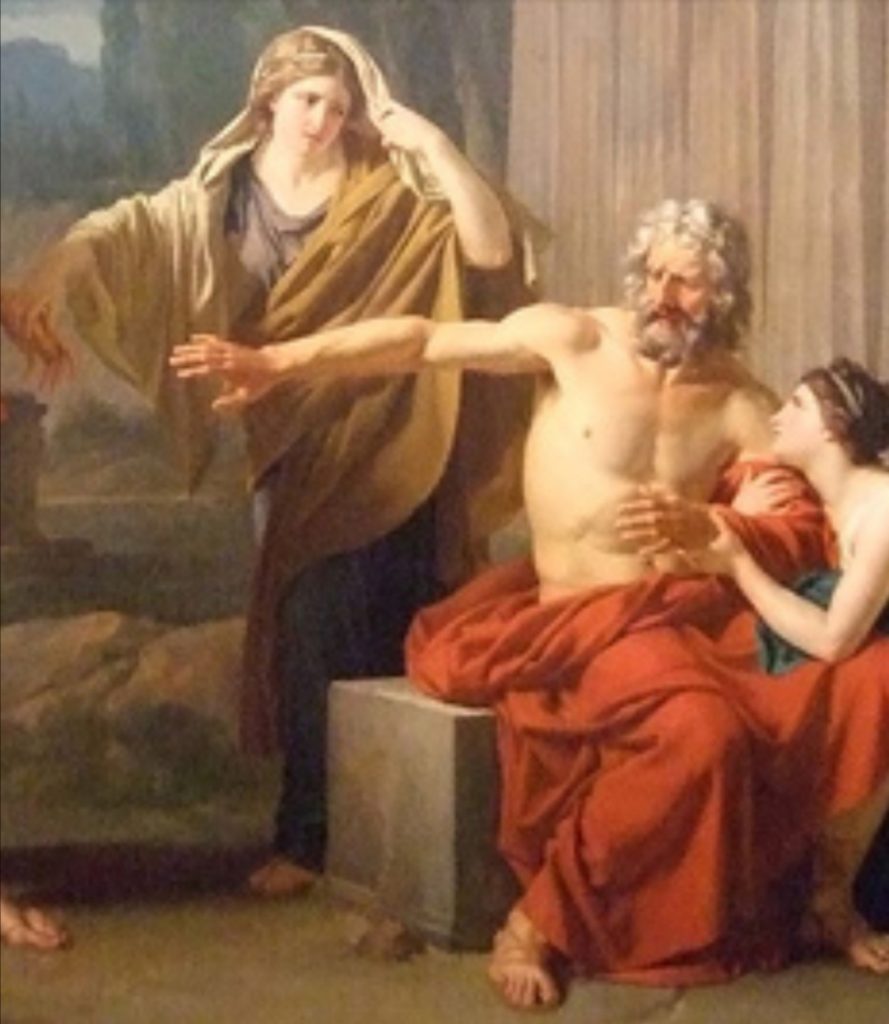
Passive Aggressive – Feelings of guilt
Guilt is not restraint. Guilty acts against the will and the fulfilment of our freedom. Restraint operates in pursuing our freedom and its role is to help us focus on a goal, stick to it and continue on our way to reach the desired independence and reach it safely.
Feelings of guilt are chains on our will. They appear in all our lives. The question is on what degree are they to be found. We are driven many times by forces that cause us to give up that which we want – and they are not born of free will but through guilt, and feelings of guilt are always tied in with crushing one’s will.
Feeling of guilt are a failure in realising will and a failure if self-realisation. This conduct is often called PASSIVE AGGRESSIVE.
Six degrees of guilt
One can identify six degrees of guilt or six strengths of a weakening of will. In general guilt grows in person if he is in close proximity to manipulations or illusions, fantasies, hallucinations, desires and fears. These are all expressions of external manipulative forces that bear down on us and harm our willpower.
The more a person turn away from an emotion that moves him, from support and recognition of his skills that are real and present feelings of guilt grow stronger. Guilt increases when a person strives to serve the will of others.
Guilt increases when a person encounters intrusive experiences in his own life’s space.
Guilt increases through manipulation.
Guilt increases the more fears and anxieties are present in a person’s life.
Guilt increases as a person deviates from his will.
The latent stage of this disease breaks forth in an adult normally after the age of 26.
One can recognize the mental illness tied up with feelings of guilt when people give up that they desire in order to balance inner feelings.
That is to say when a person calms his inner turmoil by curbing his own will. Giving up calms him down and is one symptom of this disease.
Meet the six degrees of guilt:
First degree of guilt:
The "I feel uncomfortable" is the first degree of guilt and the weakest one. The meaning of “I feel uncomfortable” is that a person will give up a plan or a wish out of consideration for another person’s wishes.
Here we are met with the right to choose of a one person verses that of another. The diagnosis is clear. I want to go for a dance practice, but I give it up, because I feel uncomfortable watching my neighbour carrying a heavy shopping load to the fourth floor on her own…..
The meaning of giving up one’s desire the first degree of guilt is twofold:
The person knows what he wants, but he will voluntarily give it up.
The statement: “I feel uncomfortable” Brings this person to give up his own plan or wish because of a consideration for the will of another. He chooses between his own will and being considerate.
The “I feel uncomfortable” feeling develops a stormy or frustrating inner dialogue. A person’s soul rages as a result of this discussion. The person’s stance is not heard, his will gets buried and cannot be sensed and the “I feel uncomfortable” rises up and leads his actions. The reason for this rage arises when the will appears and is negated without real debate. As it is clear that were I to ask my neighbour if she is willing for me to give up my dance practice in order to help her, her answer would be – No!!!
I want …
Or I do not want. These are stances of making your voice heard. “I feel uncomfortable” is a sensation. Not a stance and not a heard voice – on the contrary – it is a silencing. Silencing the voice of will.
A person with first degree guilt becomes part of the patriarchal silencing culture which does not believe in equality and in a fair discussion.
A person has feelings of guilt and will try to realise himself in the face of the “I feel uncomfortable” will burn inside and will experience an internal storm. In matter of fact taking action against his will is what releases him from the storm.
The stage of avoiding action in order to calm oneself was mentioned above as a mental illness. When the illness is at the first degree it is not dangerous, but from the fifth degree up, hospitalisation is sometimes considered.
The physical manifestation of the shutdown of on the first degree of guilt appears in the forehead muscle – Frontials, the back of the neck – Splenius capitis, and lower back vertebrae L4 – L5 region.
Treatment of first degree guiltThe treatment in all degrees will involve looking at the source of guilt, in this case the manipulation. One must deconstruct and dismantle the manipulation. But what will aid us as well is flower extracts of Rhus coriaria, the spice of Sumac, and Agrimonia.
The remedy for treating first degree guilt
Putting together the remedy one must use a limited and matching number of extracts, using at leadt 2 of the following:
Sumac, Agrimonia, Pistacia, Walnut, Larch. For protection one adds sunflower seeds extract(Helianthus annuus).
In the beginning we might use three. For example:
Agrimonia, sunflower seeds and walnut.
(For a full list of extracts treatments available for first degree guilt please scroll down to the end of the article).
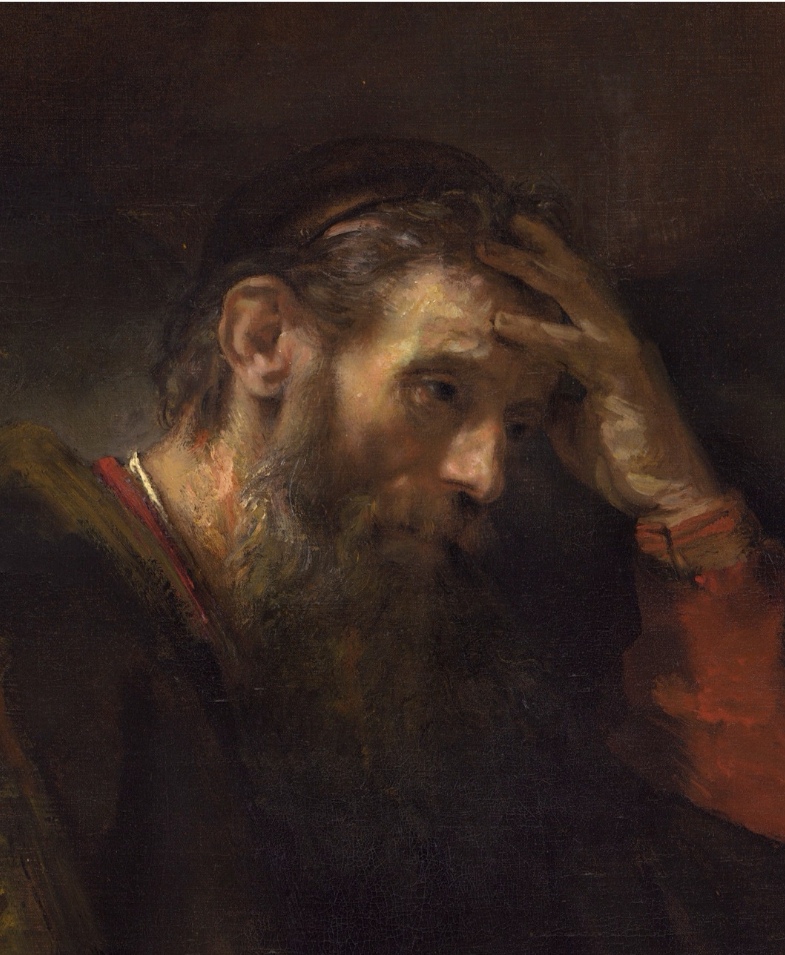
Second degree guilt –“there is something wrong with me” or “I'm not right for the job"
A person with second degree guilt criticises him/herself. “There is something wrong with me”. The person acts in accordance with his/her will but rejects the results. Worse – it is not even the result, it is his/her own self that is rejected: “I am the one something is wrong with!” he/she will say to him/herself. We are dealing with a false accusation based on one point of view, namely his/her own, which is not open to discussion. Usually this is not a real dialogue or exchange of views, but a general feeling which tells the person that he/she him/herself – their own person is wrong. This dramatic action takes place in the space of a person’s own feelings, i.e. there is an internal conflict. This drama causes a person to give up the real discussion which must be conducted with clarity, about the matter of his/her abilities:
Is the act (he/she took) was carried out according to plan?
Was it in the spirit of acceptable conduct?
Was it mostly well executed?
What the target achieved?
Has the action itself failed?
Where and why did it fail? (If it did)
Generally there are no failings. The action taken was immaculate.
In treating and breaking through a shutdown I try to bring this kind of dialogue into the discussion space, and the questions raised gradually receive an answer. Among the questions worth asking and looking at time and time again is the issue of will. Is the person truly interested in taking this action? Does it make him/her in any way uncomfortable? Does it allow him/her develop new life skills? Is he/she interested in the role this action demands and does he/she have the suitable qualifications to fill this role?

Everything is wrong
Why does the train always come late?
Second degree guilt is also projected at the surroundings – i.e. the world is wrong. Grievances and false accusations also create second degree guilt. But they also conceal the pain and frustration guilt produces in a person that acts in accordance to his/her will and feels wrong about it.
If you suffer from second degree guilt you tend to feel something is not running according to the plan, something in you stops and the “wrong” is present. You become frustrated, complaining time and again about the slow pace of things. Complaints about life become a part of the discourse that represents you.
People arrive late to meeting, cheques bounce and payment is delayed, “why is the translation for my article into English delayed?”
When second degree guilt runs your life, you manage to get to your destination, but you get there very, very tired.
It is not the delay which tires you but the feelings of guilt. As a general rules feelings of guilt cause delay, block, tire and prevent one from feeling the satisfaction in fulfilling a wish.
The shower is cold and the Sabbath is coming, the table is set and the Shabbat candles are lit only we are going to take a cold shower. There is a celebration all around but no satisfaction. There is no pleasure. These are second degree guilt feelings. The mind is still classified as healthy, but will power is weak and life’s pleasures are absent.
This is the moment to stop and mend.
1. Make a list of all the delays in your life. Write down all that which is wrong in your eyes. Read it carefully again and again, without complaining at the list you made.
2. Think: How should the list be so that your life could include rest, enjoyment and a growing satisfaction?
3. I want people to arrive on time.
Who are these people?
How do you propose to make this happen?
How do you plan for the shower to be warm before the Sabbath enters?
The manipulator
The manipulator is a weak person who empowers him/herself at the expense of others. The manipulator’s life revolves around you. He/she worries about you and demand you to run your life in such a ways that this worries will be removed from his/her life. He/she is stressed out in the kitchen and requires you to be a faithful sous-chef. He is in a hurry and you must take the dishes off the table, wash them and take down the garbage. He/she never takes the responsibility to stop worrying. He/she never acts in order to prevent taking hasty actions and to run an orderly daily routine – you will fix it! You are his/her son, daughter, spouse, you will always be introduced as his/her partner, but you do not have a role to play. You cannot make suggestions for improvement in his/her presence, and you do not have rights and you certainly do not have equal rights when it comes to taking action. Not as a partner – in fact you are not his/her partner –you are activated by him/her, for his/her benefit and him/hers alone! You have the tile of partner but in fact you are only a servant!
Feelings of guilt are created and grown by manipulators. The manipulator lives at the expense of your will power and he/she draws them out of you in order to empower him/herself. He/she is strong, but only in your presence and at the expense of your will power! The tragedy is that even if he/she will suck your will power for 100 years he /she will remain weak!
In fact the manipulator which created your feelings of guilt, in time, can retire. You no longer have need for him/her – he/she is already present in your soul. Like an extra organ. He/she is there! A person who suffers from second degree guilty carries in him/her the manipulative force which runs his/her life. This manipulative force creates in him/her a space full of guilt. It builds up the feeling that something which is happening inside oneself is all wrong. After all, one’s calling is a life of freedom and one’s role is to take down the manipulator which has been interiorised like an alien organ acting up in him/her. He/she wants to, but is shackled with the chain of “there is something wrong with me”. He/she who desires a free life, he/she who wants a life of dignity, must get rid of the dominator/manipulator and the sooner the better.
As a beginning, a first step on a long road, say to yourself: “I will be happy if I could look him in the eye and say: manipulation!!!”
The fear and mistrust of this person in him/herself will surface. The frustrations of being unable to reach satisfaction by making you fulfil his/her orders, and also from giving up opportunities will arise.
In second degree guilt things are complex and make treatment difficult. The manipulator has been interiorised in the emotional space. Will power is active, but satisfaction is absent and frustration is great. Frustration occasionally expresses itself, and at other times it is hidden by grievances. Frustration appears only in part and its function is to hide and preserve the feelings of guilt buried under the sentence: "Something is wrong with me". The illness is helped by this sentence, survives and prevents the will power to address the problem.
Second degree feelings of guilt are buried under the surface, they survive, fight for their space, control will and do not allow for a thorough examination of the situation and/or the person’s abilities. Already at this stage one can recognise a violation of human dignity.
The second degree physical shutdown appears in weakening sentences, chronic fatigue, toxic food addiction which is radiated as pain to the body muscles that become chronically tight and refuse to be released. The shutdown appears in: the armpits, inner right knee, the hip area on the right side of the pelvis and underneath the thigh muscle. Pain occurs in the muscles and also in the internal strip of the knee known as the medial collateral muscle.
Treatment for second degree guilt
The treatment in all degrees refers to the original source of guilt – in this case also the manipulation. One must dismantle the external manipulation and the internal manipulation- but we will also find manipulative figures in the surroundings. These are usually selfish people, users, critical, and verbal violence is present in them. The sentences which come out of their mouths include generalisations and false accusations.
The remedy for treating second degree guilt:
In putting together the remedy for “there is something wrong with me!” one must use as a limited amount of extracts as possible in order to create harmony between them and to dismantle the internal manipulator. I use a condensed treatment of three extracts:
Sundew, thymus vulgaris and ceratonia silique.
It is worth adding two protection extracts such as Larch, walnut, or sunflower seed.
(For a full list of extracts treatments available for second degree guilt please scroll down to the end of the article).
The need to go back and lean on a false source of internal and external support come up time and again in the first and second degrees, but from the third degree onwards we begin to touch upon much more difficult ground. I help people break away from such shaky support (broken reeds) and allow them to find on their own the power which builds the backbone for the flow of their lives. If you find out you suffer from third degree guilt, do yourself a favour a go for treatment.
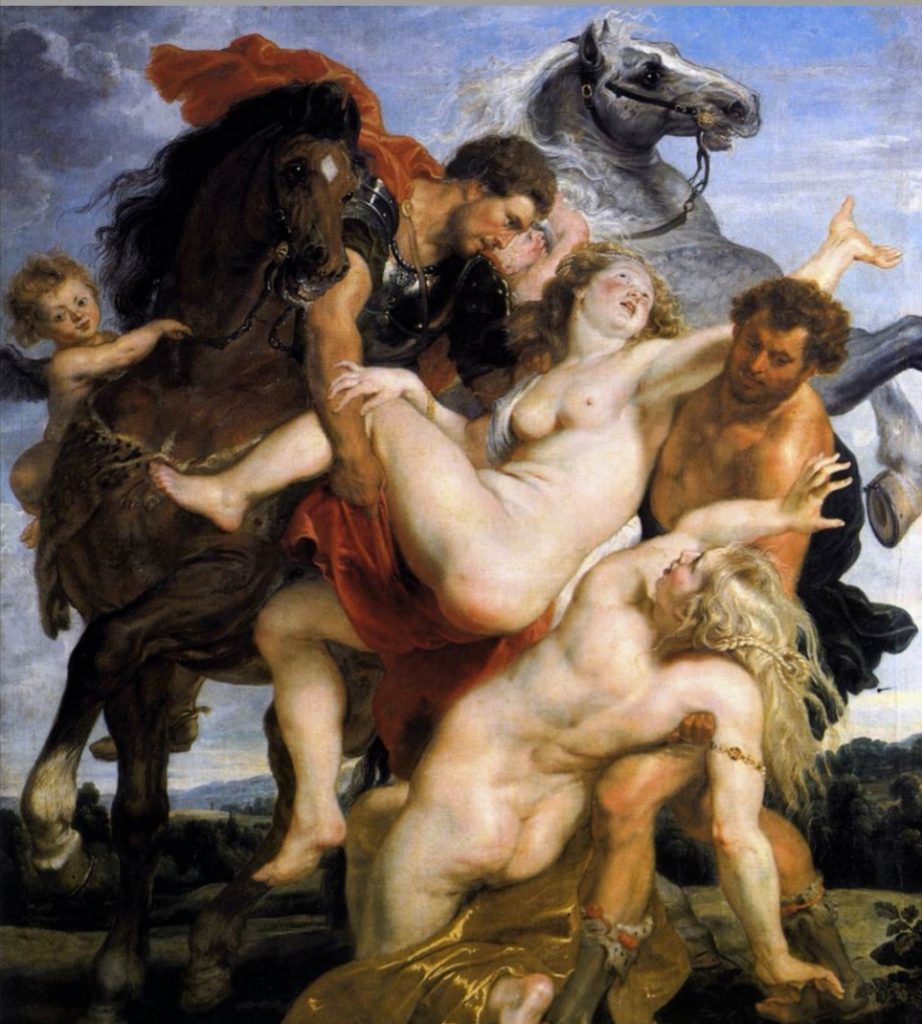
Third degree guilt – obsession
The road of one’s will begins with a thought. Thought activates (as vision and a creative idea) an action which fills a person with motivation, enthusiasm and excitement. Will gives birth to will power and will power continues and is present in actions in a linear manner directed at a goal. In the final stage the will is will to arrive at the finish line.
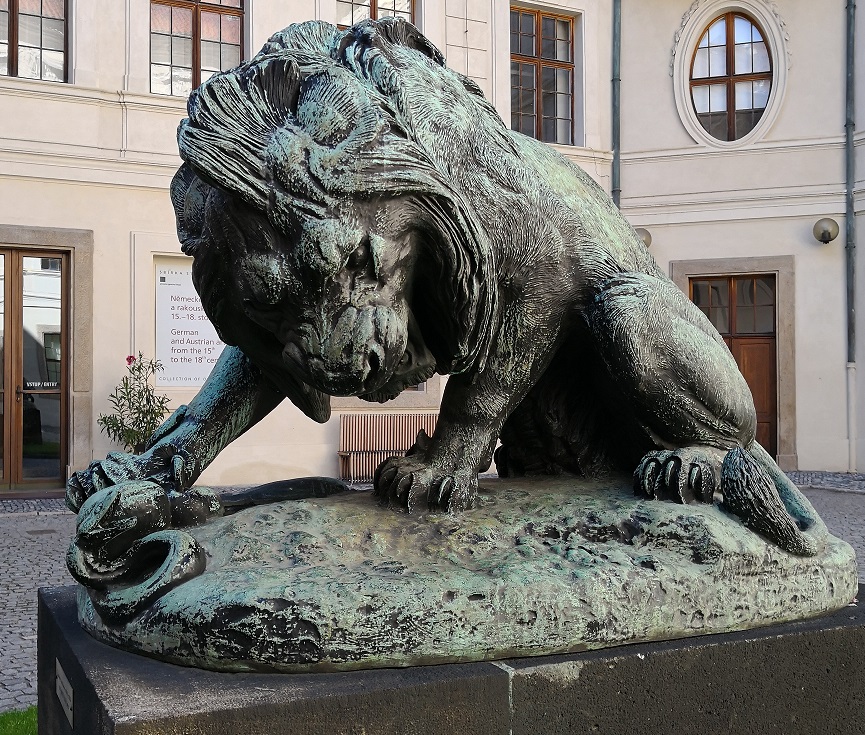
Antoine Louis Barye – " A bronze Lion killing a .snake"
In third degree guilt will power is very weak but the goal is visible and independent. There is purpose. There is a desire to reach the goal. It is not always clear where this goal stemmed from. It comes into space without a process that involves will, a plan of action and the like. A purpose springs up and the person with third degree guilt focuses on it and does not let go, grabbing on tightly.
The goal/purpose is secondary, although it is a desired goal. And this goal becomes a concern and necessity which the manipulator (a person with third degree guilt is a manipulative person) activates others for. When he sends a text message the person he sent the message to is required to respond forthwith. He is required to arrive on Friday for coffee. Obliged to say "please", "s’il vous plait", "bitte", "por favor", when he requests anything in his turn!
Observation and re-examination of the goal desired by the manipulator tells us this is a goal to which there is no actual or real necessity. It will not improve the quality of life of the manipulator. Reaching it will not bring pleasure or satisfaction – this is actually an obsession.
The soul of man which grabs on to a negligible life purpose or a minimal achievement as if it were a sacred life goal is experiencing third degree guilt. It is safe to assume that this obsession has a part in the life of a person who has not reached a truly meaningful goal ever. This obsession is therefore a kind of substitute and cover-up for his/her many weaknesses.
Third degree guilt is associated with the absence of satisfaction and meaning in life, boredom and a sense of great insult. A person is hurt and insulted on many occasions in life, even though there is no malicious intent to against him/her at all. Even if such a person is very successful in certain areas of life – he/she feels miserable. His/her wretchedness associated with an internal feeling that he/she is not living his life and he stops and prevents himself from realising his/her will.
A person experiencing third degree guilt develops excellent service skills. He/she recognises his/her abilities to oblige and please the others. He/she can develop a career in a field he/she has no interest in, and in contrast sees and feels the wretchedness of his/her will power, as he/she is not doing something of true interest to him/her. He/she may be a successful doctor, a lively postal clerk, a thriving furniture store owner, or a great painter, but his/her desire to publish a book of poems or sell the paintings, yet the poems remain in the drawer and the paintings in the atelier.
Obsession binds a person to the external space. There is the real manipulator to be found. The manipulator has ways to trample will with a single look. He/she knows how to make little noises – his/her manipulative language is not verbal. He/she will not incriminate him/herself in front of his beloved son, and will not reveal him/herself to the precious daughter or spouse – he/she hides behind a conduct which imposes his/her desires on those around him/her.
With a tight grip this external force empties the internal energy of a person suffering from third degree guilt, and diminishes his/her mental powers. The real manipulator is to be found in the obsession, and he/she is hidden. He/she humiliates him/herself and the other (the person suffering from guilt). He/she magnifies and increases his/her own importance. He/she receives greater importance. And the more he/she avoids answering the phone of the person suffering from guilt – the more important the manipulator appears to the manipulated.
Obsession humiliates. It takes on the stature of something divine – as if it was the manipulator himself. With its power obsession creates a sense of inferiority, false critic and insults, addiction to weak and dismal characters that receive (from the obsessed) a gigantic status (see the poem "giant" of Charles Baudelaire – I composed one of my most famous dance numbers in the show "Cursed Women” to this poem)…
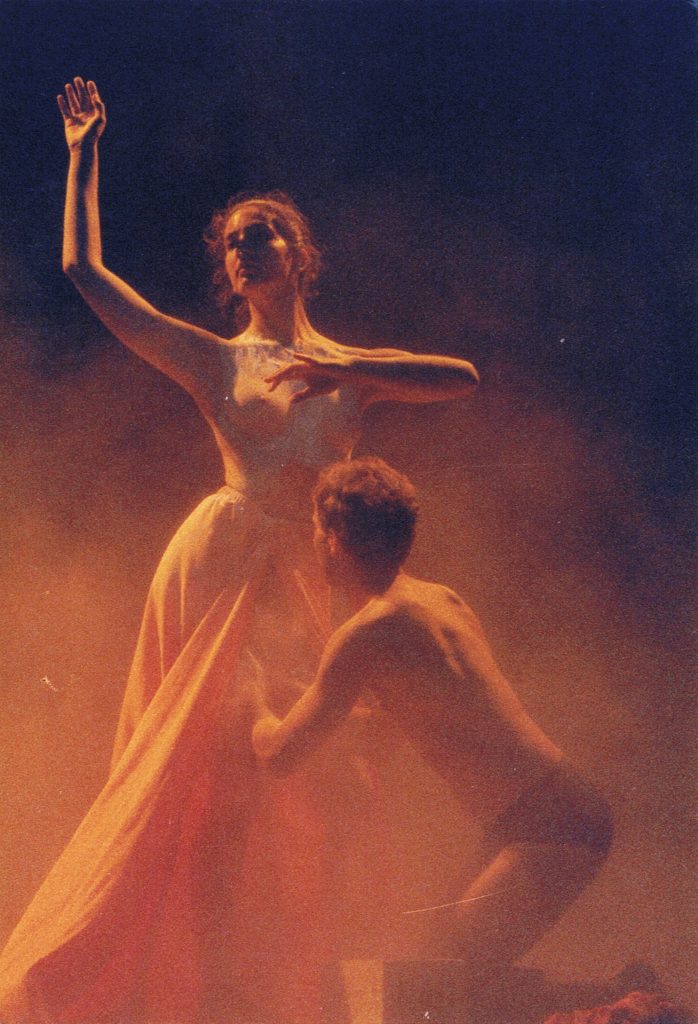
Yonat Daleski & Yaron Margolin in Yaron Margolin's famous Dance ׳Curssed Women' inspired by Charles Baudelaire poems from Les Fleurs du mal (1857)
Obsession is what stands behind fixations and is characterised by a person repeating time and again the same behaviour pattern. The phenomena of obsession searches for miracles, medicines and magic potions, superstitions and fear based on delusions, Sisyphean efforts and an addiction to them. In this degree there is a clear lack of knowledge for limitation and the absence of learning from life experiences.
On the surface one will observe a constant hastiness, impatience, and a strong desire for reality to change automatically and as soon as possible: “I wish we were there already” “I wish this bastard will answer or call already” and “Why can’t I find the glasses which are already on my nose.”
Obsession is expressed through a renunciation of a peaceful life and in giving up availability to advance one’s own matters in life. There is an unusual and focused activity focused on another. The importance of the person who is insulted by the obsessive person is enhanced and becomes much greater than that of he/she to him/herself. The injury to his/her dignity and the person responsible for it are given a priority in his life.
Obsessive discourse
In third degree guilt the person becomes terribly talkative. He/she finds it difficult to contain overwhelming life experiences and finds himself conversation partners to whom he/she can chat in great emotion. He/she reports that there is no parking. He/she reports that there is parking and is upset that there are no more cakes in the coffee shop. He/she calls hi/hers conversation partner feverishly if the hot water ran out in his shower and one does not want to even think what he/she will do if the boiler will break down…
The obsessive person lives in symbiosis with a partner – he/she depends on his/her partner and needs him/her greatly. He/she is the only one who can understand /her – and immediately. He/she passes most of the day in distress and a search for a life line. Distress stems from the life of the present. He/she experiences his/her life intensely, an experience that charges his/her soul and fills it with storms full of excitement. It is these storms which he/she wishes to calm down in sharing them with his/her conversation partner.
He/she wishes his/her regular conversation partner will manage to calm him/her down (and he will do his best not to allow him to so do). His main choice for such a person will be someone suffering for fourth degree guilt, who will view calming him down as a challenge. A dependent relationship will develop between the two.
A person with third degree guilt will become scared, dependent and terrified of emptiness. His/her many fears regard the future. Around every corner disaster awaits, and in addition he/she lacks the ability to trust. Existential fear floods him/her as well as stage fright, fear of success, fear of separation and fear of recovery. He/she is afraid to go for treatment.
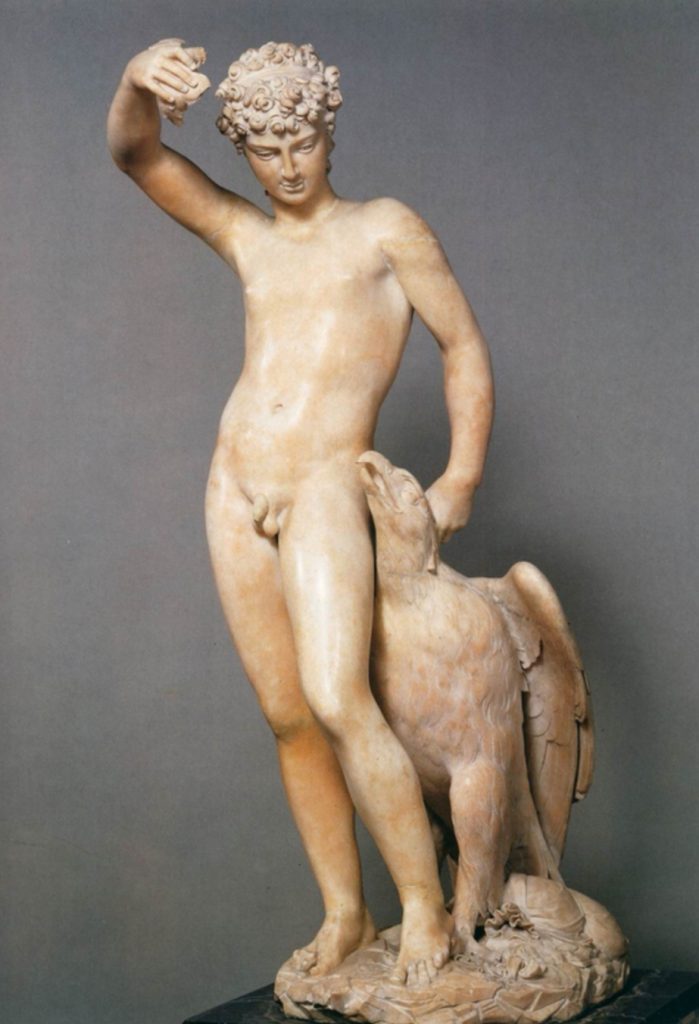
Echo and Narcissus
Echo and Narcissus are two central figures depicting an ancient Greek myth of one-sided love and the obsessions of Echo with her partner Narcissus.
Indeed Echo is bound to Narcissus by third degree guilt. Echo was a beautiful nymph, and one of the hunting companions of the goddess Diana.
She had a weakness for talking. Whether in a friendly chat or an argument Echo insisted on having the last word.
One day, when Juno, Zeus's wife followed her, fearing he was hanging out with one of the other nymphs, Echo managed to delay Juno with her flowing conversation, thus allowing the nymph to escape. Juno took revenge on her by turning her into a shadow-woman, follower of a charismatic and admired figure – all be it an empty and hollow one: "From now on, (cursed her Juno) this tongue with which you tricked me will serve you but for your favourite purpose – answering back. You will indeed have the last word, but you will forever be unable to start a conversation.”
And so Echo fell in love with Narcissus. Thousands of words have been written about her one-sided relationship with the youth mesmerised with the reflection of his own image in the swamp, empty and in love with himself. This story is all about the fear of intimacy, lack of self-realization and an obsession that reflects third degree feelings of guilt.
The physical shut down associated with third degree guilt appears in the Romboideus, a small lozenge-shaped muscle that draws the shoulder blade in, raises it up and turns it downwards . According to the shutdown theory this place reflects a failing in intimate life and a difficulty in creating a reciprocal relationship of equal partners. A shutdown can also appear in the muscle which is found under the clavicle, the Subclavius and in the bicep ( Brachialis) which allows for bending the middle finger. When this appears in the left hand it represents a difficulty in containing the conduct of others. One can expect to be able diagnose a trauma that occurred around the age of 5.
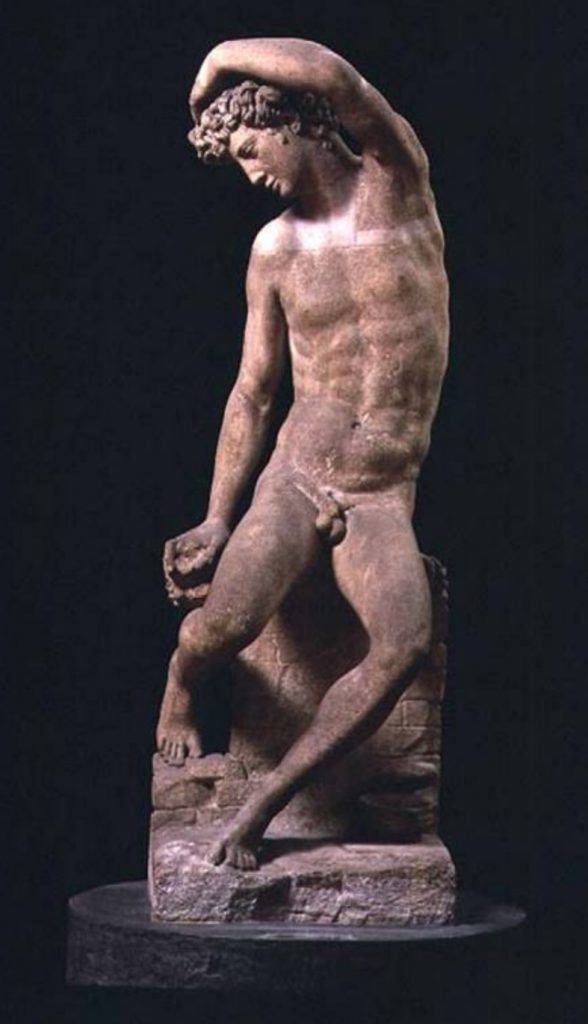
Treatment of third degree guilt
The treatment in all degrees will be directed at the source of the guilt – and here again, the manipulation. Manipulation is a language – a language which contains no dialogue. It is mainly physical: a slammed door, staring, raising a hand dismissively, ignoring, silence, lack of response, raised eyebrows, rattling and false accusations – “you're are always so stupid….”
One must dismantle the manipulation and the sort of manipulation which clutches obsessively onto willpower –one can identify extreme transitions from the person being obsessed with one self to obsessed with other, and also omnipotence (from the Latin Omnipotens), self-humiliation and megalomania. These persons are usually critical and use verbal violence, generalisations and false accusations.
The manipulative figure is prominent in the life of the person suffering from third degree guilt: a violent employer, a passive partner, an absent partner, a narcissistic partner. Unequal relationships, lack of open discussion and admiration of the spouse even if he does not return love or recognition of his/her skills. Without treatment the feelings of guilt and exposing the paralyzing (manipulative) space the person will not heal, and “his/her own life” will not return to him/her. He/she will not be at peace. The shutdown will appears as pain radiating down the frontal Deltoid muscle as a chronic contraction that refuses to be released.
The remedy for treating third degree guilt
In putting together the remedy for treating obsession one uses a number of extracts which create harmony between them and have the power to increase the strength of will and dismantle the obsession. I use one of the following seven extracts:
Threshold (great desert flower sniper family), weeping willow, Faonis, Holly, endive, mustard flowers, and rice flower, to which I add softening extracts for protection.
An additional extract I use in treatment against obsession is Scallop-Leaved Mullein. I use it when the person also suffers from insomnia.
(For a full list of extracts treatments available for third degree guilt please scroll down to the end of the article).
Fourth degree guilt -The Holy Madonna, dedication and over-giving
The fourth degree of guilt is about a person who can be described as “The tool barer” and “The martyr”. For example figure such as: the Madonna, the Messiah or the Knight on the white horse. All persons suffering from forth degree guilt have in common a boundless devotion to others. This person takes pleasure in giving. He/she devotes him/herself to another and enjoys it. Much like in the legends about the prince on a white horse on his way to rescue a princess from her sufferings, or to wake her up from her comatose sleep.
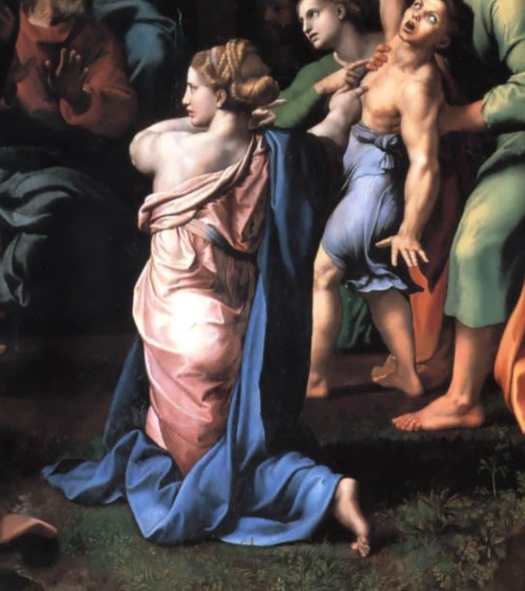
A person suffering from the Madonna syndrome can recognize the suffering and frustration of others from miles away. Strong and powerful empathetic forces have been developed in him/her, and he/she is connected with the suffering and frustration of others symbiotically. His/her symbiotic ties to the sufferings of the world are so great they enable him/her to hide his/her own suffering, and if he/she does not succeed in dissolving the suffering of others he/she cannot rest in peace.
His/her efforts for the other are inexhaustible and go unappreciated – on the contrary he/she is criticized and wins great contempt for them.
His/her guilt feelings are buried. His/her will is trodden upon and he/she experiences will only as a wish to help others.
It is a very difficult task to treat a person who experiences such guilt that lead to a need for never-ending devotion.
Chronic fatigue and sleep problems will surface. Resentment will arise from the ingratitude and lack of appreciation for his/her actions for others.
This is a state of restlessness. In the fourth degree of guilt there is no peace, and enjoyment is mainly related to the ability to help a sufferer. When he/she is done helping these suffering, the point of satisfaction is absent. He/she will not pause or rest, but will move to find a new poor soul to rescue.
Beware: If he/she enters, willingly or unwillingly, into a state of self-satisfaction or self-serving, he/she feels as if a great tragedy is about to happen in his/her life. His/her difficulty is also reflected in the absence of a relationship or financial collateral, or a neglect of his/her own children.
A part of the serious side effects that develop in a person like that is breast cancer in the left breast and decreased kidney function.
More often than not this person will be in a violent relationship where he/she is in on one hand in the role of the victim and on the other in that of the saviour of the poor violent other who bits him/her without mercy. (The reason for wanting to save him/her is that stem in his/her understanding of the other’s distress, since he/she was beaten in childhood).
The physical shutdown of fourth degree guilt appear in an unequal relationship and is reflected in breast cancer, difficulties in breathing, a failure in kidney function, urinary tract infections, pain in the pelvis muscles -tensor fascia latae, in the root of the right hand palm (In the zone of flexor pollicis longus).
The treatment of "the holy Madonna" – fourth degree guilt
The treatment in all degrees will refer to the source of guilt – indeed, the manipulation. The manipulation in this case originates in the strenuous sufferings and the abusive, violent partner. The manipulation must be acknowledged, but for a person suffering from forth degree guilt acknowledging it borders on impossible. The person is used to seeing his/her actions as a righteous moral fulfilment, the life of a saint much like dedication to a god. This manipulation has a tight grip on one’s will, and brings a person to live in the shadow of other’s pain and as a servant to his/her partner, or the animals under their care.
The remedy for treating fourth degree guilt
In putting together the remedy for treating the “Madonna/martyr syndrome” one uses several extracts that create a harmony between them and have the power to empower the will and dismantle the obsession. I use two of the following nine extracts each time: cornflower, carob, honeysuckle, balsam (White), dandelions, heather, holly, and Mariposa Lily which originates in the extracts used by North American Indians. I add extracts which protect and preserve will power.
(For a full list of extracts treatments available for first degree guilt please scroll down to the end of the article).
Fifth degree guilt – the lack of recognition of one’s abilities
In the fifth degree of guilt a person connects with people and places which do not recognise his/her abilities. Many times he/she insists on working in a country where there is no need for his/her abilities and frequently he/she find it difficult to identify his/her talents. Often we shall find such a person spinning a long story of his/her disappointment in his/her results. At time this person recognises his/her actions but is unable to develop economic recognition, obtain a good standard of living or real appreciation of his/her work.
In the fifth degree a person falls in love with the image. Image in the old psychology is called Tonal –the external image: Job title, social status, belonging to a group of special people; these are what gives him/her the force to exist, forces of action and recognition in the right to exist. Being at one with the Tonal gives birth to his force to take action, a feeling of wholeness and a new meaning exists in his/her life.
Loss of dignity
There are life skills which take care of a person’s dignity. This issue is well researched today and many different degrees of dignity have been recognised. I shall stick to financial dignity in discussing the fifth degree of guilt. A person whose will power is tied in chains as strong as the fifth loses his/her dignity in the end. It seems he/she has developed special skills in order to do so.
The Tonal looks after a person from the outside. It strengthens and enriches him/her and it as long as he/she is positive and not malicious or full of intrigue, (which is the kind of character one who has lost his dignity adopts), and therefore has a different set of life skills.
At times he/she will fall in love while holding a powerful role with a partner that disregards his/her will to develop in the area he/she has the skills for. At times he/she will not manage to connect well with supportive figures in his/her field of business. That as it may be – but if he/she is having trouble finding supportive reasons inside him/herself, or if he/she will not identify strengths inside – powers of will to accompany him/her on the way which can help him succeed and achieve his goals, he/she will lose his dignity.
Loss of self-respect/dignity and social respect comes into play in a person with fifth degree guilt, even if it is an outstanding worker whose work is done faithfully, and even if he/she holds an eminent role and is famous. He/she will be the first to get fired from the work place, and might also be the first to be sent to prison.
In fifth degree guilt a person gets confused between him/herself and the power his/her position grants. He/she gets confused between those who love and support him/her and that which belongs to him/her, such as title, money, and status, and so exploits others. He/she has stuck on with blind faith to a role, mission, and a missionary idea. He/she took a religious/scientific/business idea and brought it to its full conclusion. No holds barred, his/her life is full of fascination and meaning, much like a full train riding in full force with no brakes.
In this degree of guilt a person believes in an idea which holds on to him/her and carries him/her and others along with it and he/she goes all the way in order to realise it. On the one hand alongside him/her everyone gives themselves to the task and there is no consideration for private life including the right to rest. He/she is indifferent to those who fall along the way, or despises them, spouting false accusations. He/she owns the culture of silencing: He/she is full of spite and is inconsiderate. He/she has no patience to listen to a point of view different to his/her own or a person who thinks in a different way. On the other hand a person suffering from fifth degree guilt is a strong and powerful person and sometimes drunk with power. He/she has energy and inexhaustible willpower. He/she considers it essential to have the commitment to work hard. It will never cross his/her mind that it is due to fear of emptiness, boredom or fifth degree guilt. When you speak to such a person of a task he/she will replay he/she is the only one able to execute it well, whereas in fact he/she has at his disposal an army of slaves to help. Should he/she fail, the only ones to be found guilt will be the others.
In fifth degree guilt all emotion is limited and there is no compassion. He/she leads the way/idea and on his/her road exhausts the others who have not got his/her amount of energy. He/she demands of him/herself to perform more and more tasks. At the beginning and end of the day guilt causes his/her downfall and destroys his/her dignity, his/her property is lost and even if he/she created an empire – it will all be gone within at the most three generations.
Emotions are limited and space is empty. Identifying with the external image of oneself empowers the person and makes him/her dependent on it. He/she lives in the illusion of independence and at time he/she is drunk with power, feeling omnipotent – in matter of fact he/she is dependent and act through fifth degree guilt. In moments of inaction emptiness rises and causes him/her to make serious strategic mistakes. He/she ignores warnings given to him/her on the way, and the voices of people who warm him/her. Disaster strikes, and shows itself by this person discovering that yet again he/she has chosen to take the wrong step which at the time he/she saw as correct.
He/she relies on the unreliable, the exploiter and the deceiver, and suspects the helper and the dedicated loyal employee. He/she himself is a cheater, thief, and is corrupt. And when it comes to the task to be achieved – he/she has no limits. He/she has no inhibitions and certainly no moral qualms. Pain and drama fill his/her life with interest and provide a kind of meaning. Meaning derived from pain pleasures him/her and therein lays a great danger to his/her mental health.
He/she fears a different point of view, other to his own. Criticism or hints as to strategic mistakes anger him/her. When he/she hears critical voices he/she experiences a great emotional upheaval which can shake him/her. This is a real danger that resembles a large water dam cracking, flooding and collapsing.
Such a broken dam can bring him/her to be hospitalised in a closed ward and even cause a schizophrenic outbreak, manic depression and actual schizophrenia. This person is upset, frenetic, very critical, temperamental, jealous, feels rejected and ostracized, at time he/she suffers from perceived problems of distances in space between him/her and the outside world. Sometimes the space is too big and sometimes too small and clingy. There is a clear sense that the negative process has no end, and we recognize also a radical change in the economic situation. At times the shutdown brakes without being provoked by an external event, and is to do with the crisis associated with reaching the age of fifty. (When women reach the age of 48 and men 50 or more). This shutdown is tied to being drunk with power, megalomania, errors in judgment, boredom, an existential threat, a loss on one’s good name, or loss of hope and fear of the future.
The physical symptoms of this shutdown appear in the intercostal muscles (between rib 7 and 8) and on the back of the right leg, especially when the vacuum is filled with action which inspires this person with faith in his/her powers. Also vice versa, when the Tonal image whose forces were holding his/her mental spine together crashes. He/she is very upset and cannot find tranquillity. The shutdown is reflected as pain in the bodily muscles which are all tight in the right arm, beginning with the lateral top of the triceps (Triceps Brachii).
The remedy for treating fifth degree guilt
In putting together the remedy for fifth degree guilt one uses several extracts that create harmony between them, and have the power to strengthen the will and dismantle the sense of lack of interest and lack of meaning in life, as well as extracts which can strengthen the will to develop new life skills and gain recognition. I use two of the following ten extracts:
Green bamboo, lotus, rue, Louisa, (Verbena officinalis), Agrimony, Marigold, Tabor oak, bay leaves, violet – peonies and water violet.
(For a full list of extracts treatments available for fifth degree guilt please scroll down to the end of the article).
Sixth degree guilt – feelings of guilt and abstaining from self-realisation
Feelings of guilt are extremely strong in the sixth degree and are what marks the outbreak of the illness. A person is chained experiencing a lack of motivation and self-humiliation. Thoughts are racing through his/her mind. The future seems bleak and hopeless. He/she feels emptied of emotions. His/her body is weak as well, and he/she feels as if he/she has become older or is paralyzed.
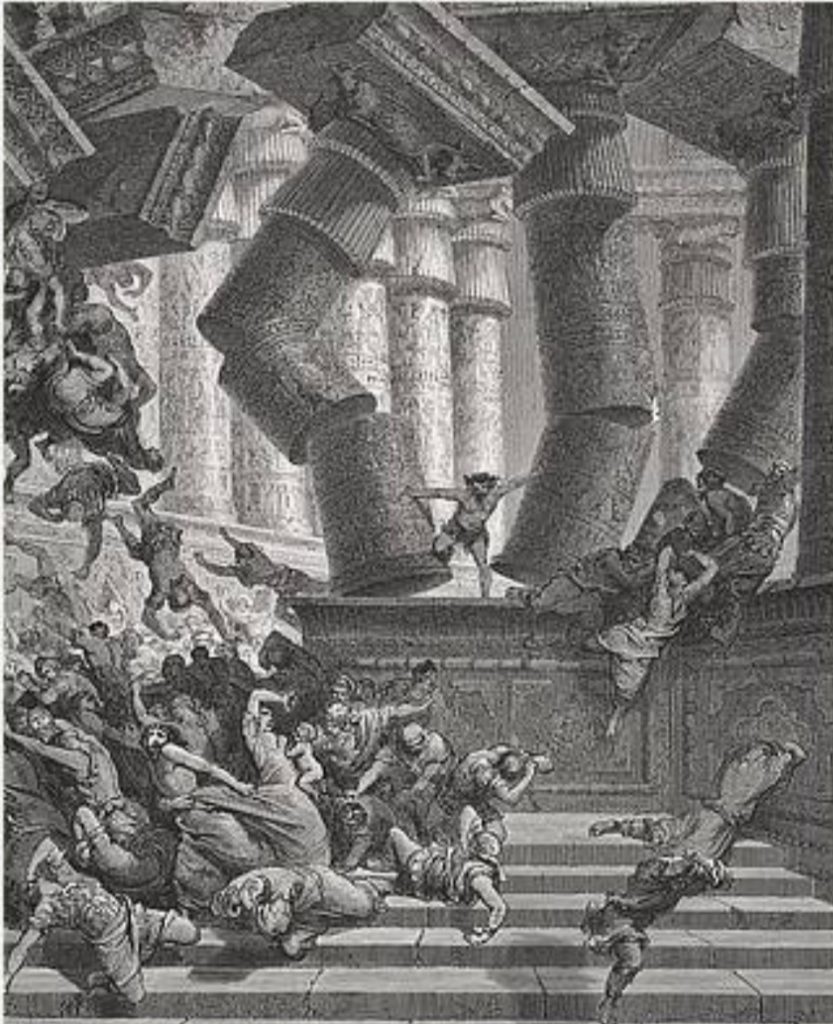
In sixth degree guilt a person is helpless. He/she could be depressed, or haunted with fears. The mere idea of taking action is immediately dismissed by him/her, for fear of failure.
In this degree of guilt and chained will the person is driven by fantasies and illusions. Reality slowly departs from his life. All his energy is directed at proving that the fantasy that has taken hold of his mind is possible, and reality is not.
This is a most serious condition in which the connection between a person’s fantasy and reality is loose. This person is capable of falling in love with a someone who does not even know he/she exists, and nevertheless the person will find prove for the other’s love for him/her. Unable to see reality, this kind of person will grab hold of any minor details, which he/she collects desperately in order to prove that he/she is not hallucinating.
Rebecca was suffering from sixth degree guilt when her parents brought her to me in the late nineties. She fell in love with her philosophy professor. Rebecca sat in his class with 50 other students. Having learnt her Professor takes bus No. 9 to and from the university she started doing the same. Rebecca started to note which sweaters he wears on which day, and found prove in that for his love for her. It took 4 years of treatment for Rebecca to be able to be in a relationship with a partner who returned her love.
A person who suffers from this degree of guilt is in risk of ending up with a split personality disorder. He/she is afraid of the future, of reality, afraid of contact with a dominant person for fear this person will control him/her, and so is very difficult to treat. He/she will always project the blame unto the person trying to help him/her.
He/she lives in a space that does him injustice. The person who abuses him/her regularly is seen as a loved one. A person with sixth degree guilt does not find a way to be cured, and usually arrives at the bottom of the abyss from which he/she will emerge slowly, many times after hospitalization.
Feelings of guilt can be an illness hard to identify. It is especially hard to diagnose what degree of guilt is it that a person feels. The degree of guilt is associated with the manipulator, as we’ve seen before. He/she is the main reason for the forces which hold the ill person, and he/she controls him/her much like a puppet master does a Marionette in a Puppet Theatre. When an inspired puppeteer is holding the strings, the Marionette seems charming and captivates the heart of the beholder.
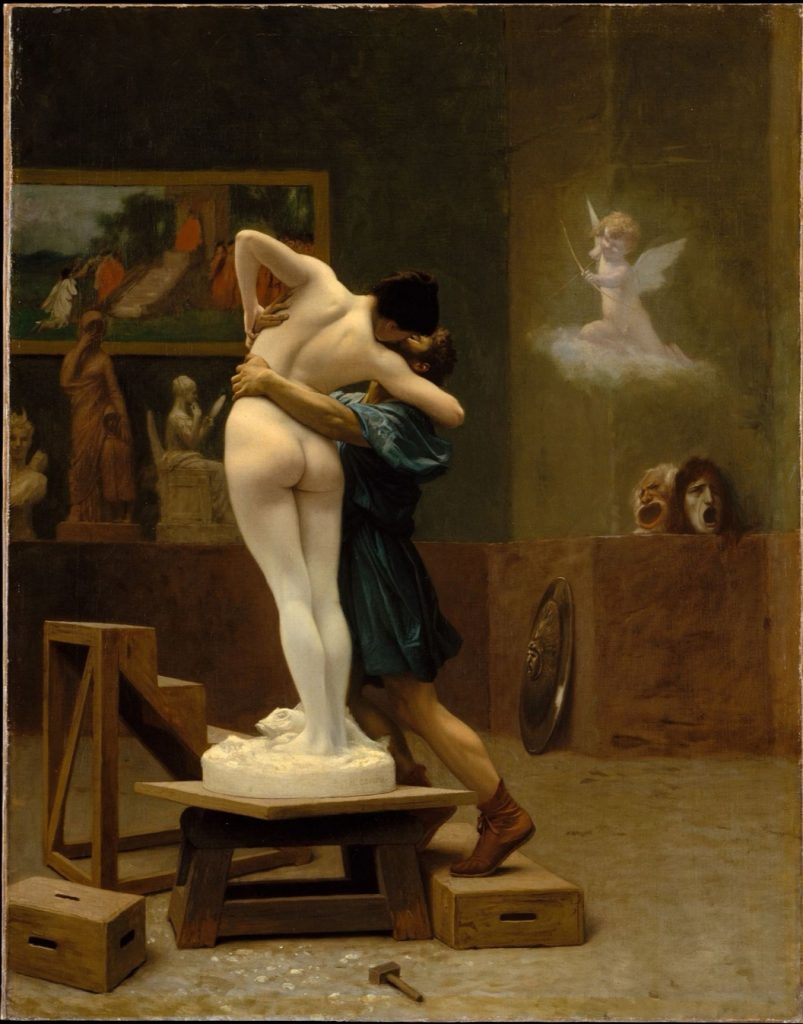
In Ovid’s Metamorphoses Pygmalion was a Cypriot sculptor who hated women and vowed never to marry. However, when he carved a statue of a woman out of ivory (called Galatea) she was so beautiful he fell in love with his own work. At the festival of Aphrodite (goddess of love) he secretly made a wish for a bride who would be a living likeness. On arriving home he kissed the statue and found that its lips were warm. The goddess had granted his wish, the statue came to life, and he married her. They had a son called Paphos.
Feelings of guilt of this degree bring a person to lean on and trust another. He/she is subject to his/her authority and depends on his/her whims. These whims can sometimes cause unhappiness, lack of funds and illness. They can also be exciting ideas in all areas of life: love, education, religion, health, and business. But we must remember we are talking about dependency on another person who runs the show, much like a director does actors.
What all those who feel guilt have in common is giving up their own will power. From the fifth degree upwards the person is sick and is risking total collapse of his mind leading to a serious mental disorder. Sometimes the third and fourth degrees can also lead to serious mental illness.
This person is afraid to be alone, idle, bored and often refuses to use drugs, electric shock or treatment, even treatment of the manual kind (pressure points). As stated above, from the fifth degree upwards the illness is imminent and the person who began his life in the shadow of a manipulative figure may reach hospitalization in a close psychiatric ward.
The symptoms of physical shutdown the sixth degree are insomnia, lack of appetite, digestion problems – constipation, upper back pain due to muscle stiffness, and when one touches the surface of the back it is easy to recognise a difficulty in moving the shoulder blades.
This shut down is also reflected in several muscles:
1- The muscle of the left forearm which is responsible for the deep bending the fingers (Felxor digitorum profundus).
2 – In a number of small muscles in the palm of the left hand such as: the Musculus flexor digiti minimi brevis manus and the Musculus adductor pollicis.
3- The back of the hand muscles between the fingers – Dorsal Interossei.
4 – In the foot muscles at the base:
Adducator halluces – responsible for flexing the big toe.
Flexor digiti minimi short brevin – responsible for pointing the little toe.
Interossei – the muscles between the toes.
The remedy for treating sixth degree guilt
In putting together the remedy for treating guilt feeling and abstaining from self-realisation we will use several extracts which put together react harmoniously and have the power to strengthen will power and dismantle the external manipulative influences. Two are absolutely mandatory: pine, which works on guilt (I use an extract which has either been taken from pine resin and treated in the Jerusalem sun, or the alcoholic extract from different parts of the pine tree – the bark, flower, leaves and pine cone) and chicory, which dismantles the effects of manipulative characters.
In addition, I use two other extracts because the reaction between them helps create harmony in the life of the patient. The flower essences must embrace, protect and empower patients as quickly as possible and within three days one can see results.

I consider using these three of the following extracts: Ornithogalum (alcoholic extract of the whole plant), acne, cotton flower, agave, poppy, blood of Maccabees, Yellow bamboo, orange (ripe fruit extract) Cherry Blossom and peony woods . Peonies are prized for their large, showy flowers. A popular cut flower, they are also an attractive plant in a sunny flower bed or container garden. Few know their healing powers on the suffering human psyche – How to Grow Perfect Peonies – Click here
(For a full list of extracts treatments available for first degree guilt please scroll down to the end of the article).
Extracts List (in addition to the ones mentioned before) for treatment of all degrees of guilt and a chained will power
First degree:
Sumac, cotton, vine, agrimony, spartium, clematis and gentian.
One can add for protection and help wisteria, sunflower seeds, and walnut.
Note: In assembling extracts to make a formula for treatment one must use a limited amount of extracts, and fitting to the case, amongst which must be at least two extracts of the following for protection and help: Ornithogalum (alcoholic extract of the whole plant), acne, cotton flower, agave, poppy, blood of Maccabees, Yellow bamboo, orange (ripe fruit extract) and cherry blossom.
Second degree:
Cotton flower, cotton stalk and leaves, Sundew, hornbeam, Cerato, Serrat.
Third degree:
Threshold, walnut, willow, mustard flowers, holly, rice flower, lavender flowers, balsam, heather, chestnut red, Louisa, vine, white chestnut, Heather,Verbascum, Scallop-Leaved Mullein, Chestnut bud..
Fourth degree:
Chicory, carob, Arab hawthorn, honeysuckle, dandelion, jacaranda, Mariposa Lily ( from North America), Poplar, Marigold, castor oil, water violet, Serrat, Heather and clementis, red chestnut wild Rose.
Fifth degree:
Green bamboo, lotus, rue, Louisa, (Verbena officinalis), Agrimonia, Marigold, Tabor oak,bay leaves, water violet, Papyrus, autumn leaves and wild rhubarb.
Sixth degree:
Ornithogalum (alcoholic extract of the whole plant), acne, resin, cotton, dandelion, bark, flower and fruit cone of Aleppo pine, agave, peony woods, poppy, blood Maccabees, Yellow bamboo, orange (extracted by boiling the ripe fruit) and cherry blossom.
By: Yaron Margolin
Posted 12.10.13
If you have any questions left –
I'd be happy to answer any questions.
For a direct application form to Yaron Margolin – please click here
לטופס פנייה ישירה אל ירון מרגולין – נא להקליק –כאן
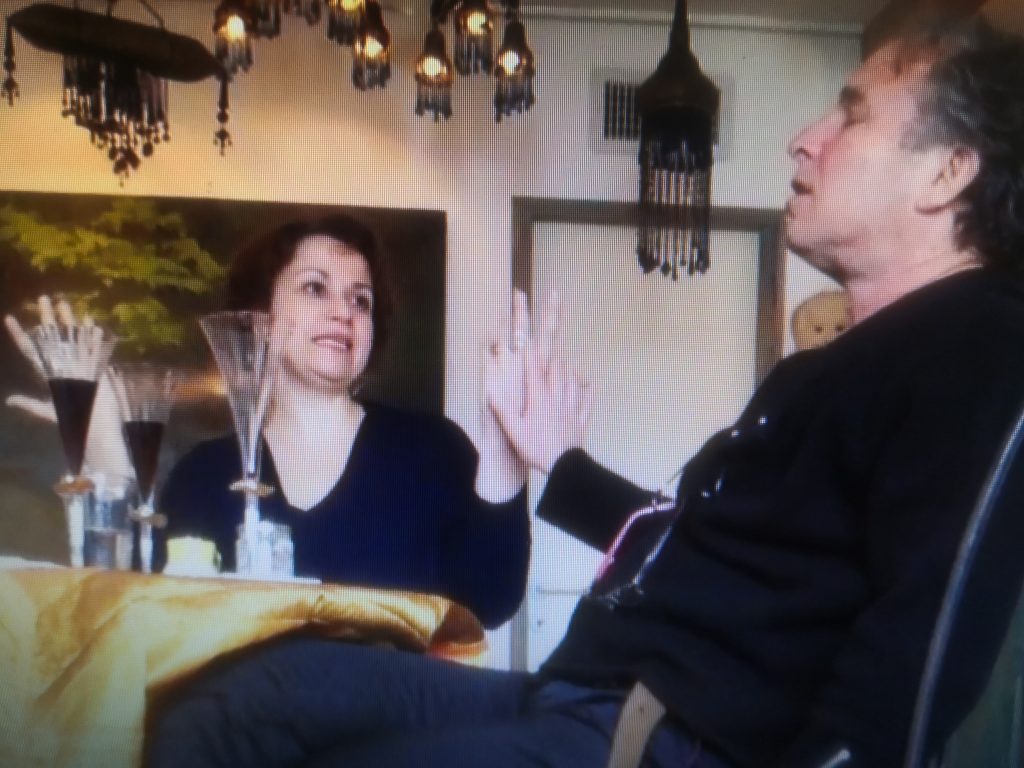
Translated from Hebrew – Idit Arad
For questions and to schedule an appointment for a consultation-
To be answered rapidly please click – here
Note: All of the above, is not a cure or a recommendation for treatment, it is merely food for thought.
Recent Articles
Kidney Failure Taming the Rogue Kidneys Vital Information
מאמרים אחרונים
לחלק השלישי – תפוח אדמה והבוטיראט
לחלק החמישי – נבטי הברוקולי וחלבון הנעורים
לחלק השישי – שיבולת השועל והבטא קלגן
עשרת המזונות הבריאים ביותר לחולי כלייה. 1
מדד חדש לבריאותך – ביטול האסרוסקלרוזים
אי ספיקת כליות – טיפול ללא תרופות
אוראה – למה האוראה מוגברת ומופחת בדם Urea
הקורטיזול וכאבים בבית החזה וביד שמאל
להוריד קריאטינין, אוריאה ולהחלים ללא תרופות מאי ספיקת כליות
-אי ספיקת כליות להחלים ללא תרופות – על הGFR ונזקי התרופות
ההומוציסטאין – האויב הגדול של האנדותל ובריאות העורקים
אי ספיקת כליות – אילוף הכליות הסוררות – כל מה שחשוב לדעת – חלק ג
אריתרופויטין (EPO) Erythropoietin
רוצה להחלים מפגיעה במערכת העיכול ללא תרופות?
להחלים בפשטות ממחלת ריאות חסימתית כרונית
שחיקת סחוס, למה לסבול? – ללא ניתוח ללא תרופות – טיפול להחלמה
עורקים גמישים – הסוד והדרך לזכייה בבריאות מחדש
ההומוציסטאין – האויב הגדול של האנדותל ובריאות העורקים
פרנצ'סקו מסינה Francesco Messina אלהים באדם שחיפש אחר היופי
תרופות הרגעה שמשאירות אותך רעב וחרד – ציפּרָלֵקס, פּרוֹזַק, פלואוקסטין
התרופות והרע – ביוטין B7 ויטמין H
טיפול נפשי ללא תרופות – חרדות, פחדים וייאוש – תסמינים שיש להם פתרון טבעי, מדויק ומהיר
חזרה לבסיס – עקרונות צירופי המזון
ראיית המעמקים – כניסה לטרקלין או על החיים האמתיים.
מגיע לי – העדר הכרה במאמץ של השועט קדימה, בהחלט יכול להוביל לכישלונה של קריירה מזהירה.
סוכרת כלייתית (נפרופתיה סוכרתית) כן, אפשר להחלים".
כאבי גב – פתרון טבעי, עדין ופשוט לבעיה שלך
כאבי גב לא דורשים ניתוח – רק מגע יד עדינה
צום חי – הוא תרופה טבעית. אזהרה לקטונים (Lactones) –
אי ספיקת כליות מתוקה: (נפרופתיה סוכרתית) אפשר לצאת בשלום מהצרה המסוכנת לסוכרתיים – צום חי
אי ספיקת כליות – מתכונים לדיאטה מאוזנת – טעימה להשתגע.
אילוף הכליות הסוררות – איך להחלים מאי ספיקת כליות להקליק כאן
"אילוף הכליות הסוררות" תחילת פרק א
ההמשך לפרק א' של "אילוף הכליות הסוררות"- כאן.
נשארו לך שאלות
אשמח להשיב על כל שאלה
לטופס פנייה ישירה אל ירון מרגולין – נא להקליק – כאן
בבקשה לא להתקשר משום שזה פשוט לא מאפשר לי לעבוד – אנא השתמשו באמצעים שלפניכם –
למען הסר ספק, חובת התייעצות עם רופא (המכיר לפרטים את מצבו הבריאותי הכללי של כל מטופל או שלך) לפני שימוש בכל תכשיר, מאכל, תמצית או ביצוע כל תרגיל. ירון מרגולין הוא רקדן ומבית המחול שלו בירושלים פרצה התורה כאשר נחשפה שיטת המחול שלו כבעלת יכולת מדהימה, באמצע שנות ה – 80 לרפא סרטן. המידע באתר של ירון מרגולין או באתר "לחיצות ההחלמה" (בפיסבוק או MARGOLINMETHOD.COM ), במאמר הנ"ל ובמאמרים של ירון מרגולין הם חומר למחשבה – פילוסופיה לא המלצה ולא הנחייה לציבור להשתמש או לחדול מלהשתמש בתרופות – אין במידע באתר זה או בכל אחד מהמאמרים תחליף להיוועצות עם מומחה מוכר המכיר לפרטים את מצבו הבריאותי הכללי שלך ושל משפחתך. מומלץ תמיד להתייעץ עם רופא מוסמך או רוקח בכל הנוגע בכאב, הרגשה רעה או למטרות ואופן השימוש, במזונות, משחות, תמציות ואפילו בתרגילים, או בתכשירים אחרים שנזכרים כאן.
Note: All of the above, is not a cure or a recommendation for treatment, it is merely food for thought.

Respect to author, some fantastic entropy.